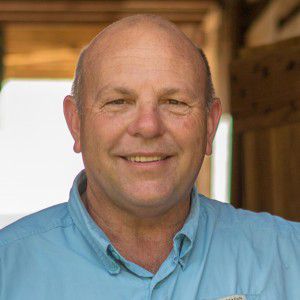Farm Bureau’s Seat at the Table
Author
Published
9/29/2022
The strength of Farm Bureau is on full display when we speak with our one united voice and come to the table to address the challenges we face at the local, state and national level. And it’s our strength and unity that has made us such a trusted voice for agriculture in our nation’s capital. Farm Bureau has a long history of coming to the table with leaders and lawmakers, and I wanted to share these most recent examples of your Farm Bureau leaders advocating for agriculture on the national stage.
This advocacy can different forms, from phone calls and personal meetings to testifying before congressional committees. Whether I am in Washington or on the road, I am keeping in close contact with leaders and lawmakers on your behalf. In recent weeks I’ve spoken with Secretary Vilsack about USDA climate programs, Chairman Gensler about the SEC climate rule, and EPA Administrator Regan about fertilizer restrictions, WOTUS and other topics. I also recently met with House and Senate Agriculture Committee leaders on issues such as livestock and the 2023 farm bill. And next week I’ll be attending the White House Conference on Hunger.
In this month alone, congressional committees invited several of our state and national leaders to speak on behalf of farmers and ranchers across the country. First, AFBF Vice President and South Dakota Farm Bureau President Scott VanderWal testified before the Senate Environment and Public Works Committee a couple of weeks ago. He spoke in support of the Livestock Regulatory Protection Act of 2021 and shared how U.S. farmers and ranchers have led the way in “promoting soil health, conserving water, enhancing wildlife, efficiently using nutrients, and caring for their animals.” We have a great sustainability story to share, and your AFBF vice president did just that with lawmakers in Washington.
Arizona Farm Bureau President Stefanie Smallhouse testified last week before the House Subcommittee on National Parks, Forests, and Public Lands to address how regulation is impacting ranches like hers, throughout the West, where ranchers are stewards of our public lands. President Smallhouse addressed how a proposed House bill would place Western ranches, and the public lands they help care for, at risk. She called on lawmakers to recognize how “livestock grazing is critical to managing and preventing invasive plant species, decreasing hazardous fuel loads to prevent wildfires, supporting wildlife habitats, and cultivating viable rural economies.”
The sustainability of U.S. agriculture also depends on our ability to compete in global markets and get our farm products to those markets. Texas President Russell Boening testified before the House Ways and Means Committee last week on the importance of building a robust trade partnership with Taiwan, and across the Indo-Pacific region. He urged lawmakers to work with the Administration to reduce trade barriers and hold our trade partners accountable because “U.S. agricultural competitiveness is dependent on having a level playing field.”
Finally, the health and sustainability of our agricultural communities depends on bridging the digital divide. As I travel the country, I regularly hear how critical broadband connections are to our farms and rural communities. (And I’ve faced the challenges and frustrations of unreliable or slow internet on my own farm.) Missouri Farm Bureau President Garrett Hawkins shared these challenges with the House Agriculture Committee last week and discussed how Missouri Farm Bureau has brought together leaders, lawmakers and researchers to reach unserved and underserved communities in their state. As Pres. Hawkins told the committee, “Knowing where adequate broadband services do and do not exist is critical to crafting sound public policies related to broadband deployment in rural areas.” Getting all Americans online requires partnership at the local, state and national level to identify gaps in service and to connect communities to resources.
Thank you, Presidents VanderWal, Smallhouse, Boening and Hawkins for carrying on our rich Farm Bureau tradition of advocacy! I am proud to work closely with these leaders as we serve you together. Bottom line, part of the strength of Farm Bureau is having many capable leaders and advocates to ensure all the bases are covered when it comes to advocating on behalf of farmers and ranchers. But please don’t ever forget that one of the most effective components of advocacy is when you reach out directly to your local and state leaders to share your story. Advocacy at every level is part of our federation’s effectiveness, and key to ensuring a bright future for agriculture.

Zippy Duvall
President
Vincent “Zippy” Duvall, a poultry, cattle and hay producer from Greene County, Georgia, is the 12th president of the American Farm Bureau Federation.
Want more news on this topic? Farm Bureau members may subscribe for a free email news service, featuring the farm and rural topics that interest them most!
